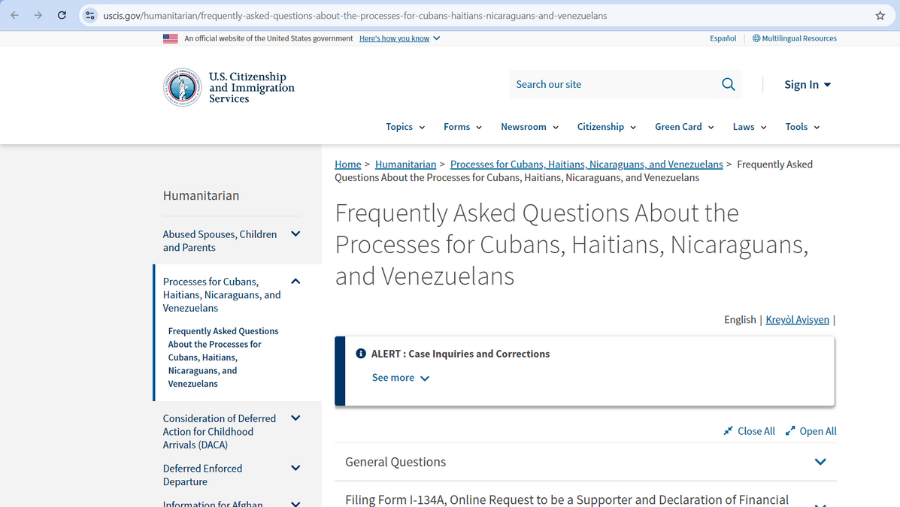- with readers working within the Insurance and Retail & Leisure industries

On October 4, 2024, United States Citizenship and Immigration Services ("USCIS") updated its Frequently Asked Questions ("FAQs") page on the parole processes for Cuba, Haiti, Nicaragua, and Venezuela ("CHNV"). The update noted that there will be no reparole process under any of the CHNV parole processes, meaning that beneficiaries of these parole programs who have not been granted lawful status before their authorized parole period expires, will need to leave the United States before the end of that period.
Individuals who do not leave prior to the end of their authorized parole period will no longer have work authorization, may be placed in removal proceedings, and may begin to accrue unlawful presence in the United States. Beneficiaries of CHNV parole processes can find the duration of their parole on their Form I-94, Arrival/Departure Record.
USCIS encouraged parole beneficiaries to explore the immigration benefits listed at uscis.gov before their parole expires, in order to determine if they are eligible to apply for lawful status and remain in the United States. Temporary Protected Status (TPS) is available to Haitians and Venezuelans currently and many of those nationals will be able to remain in the United States pursuant to that program. TPS is distinct from parole or re-parole and requires a separate application filed with USCIS.
The Biden administration created the temporary parole program in 2022, which initially allowed Venezuelan nationals to live and work in the U.S. for two years if they had a U.S.-based sponsor. The program was later expanded to include Cuban, Haitian, and Nicaraguan nationals. Parole is not an immigration status, but rather, a humanitarian program that allows beneficiaries from select countries to temporarily remain in the United States.
The content of this article is intended to provide a general guide to the subject matter. Specialist advice should be sought about your specific circumstances.
[View Source]

